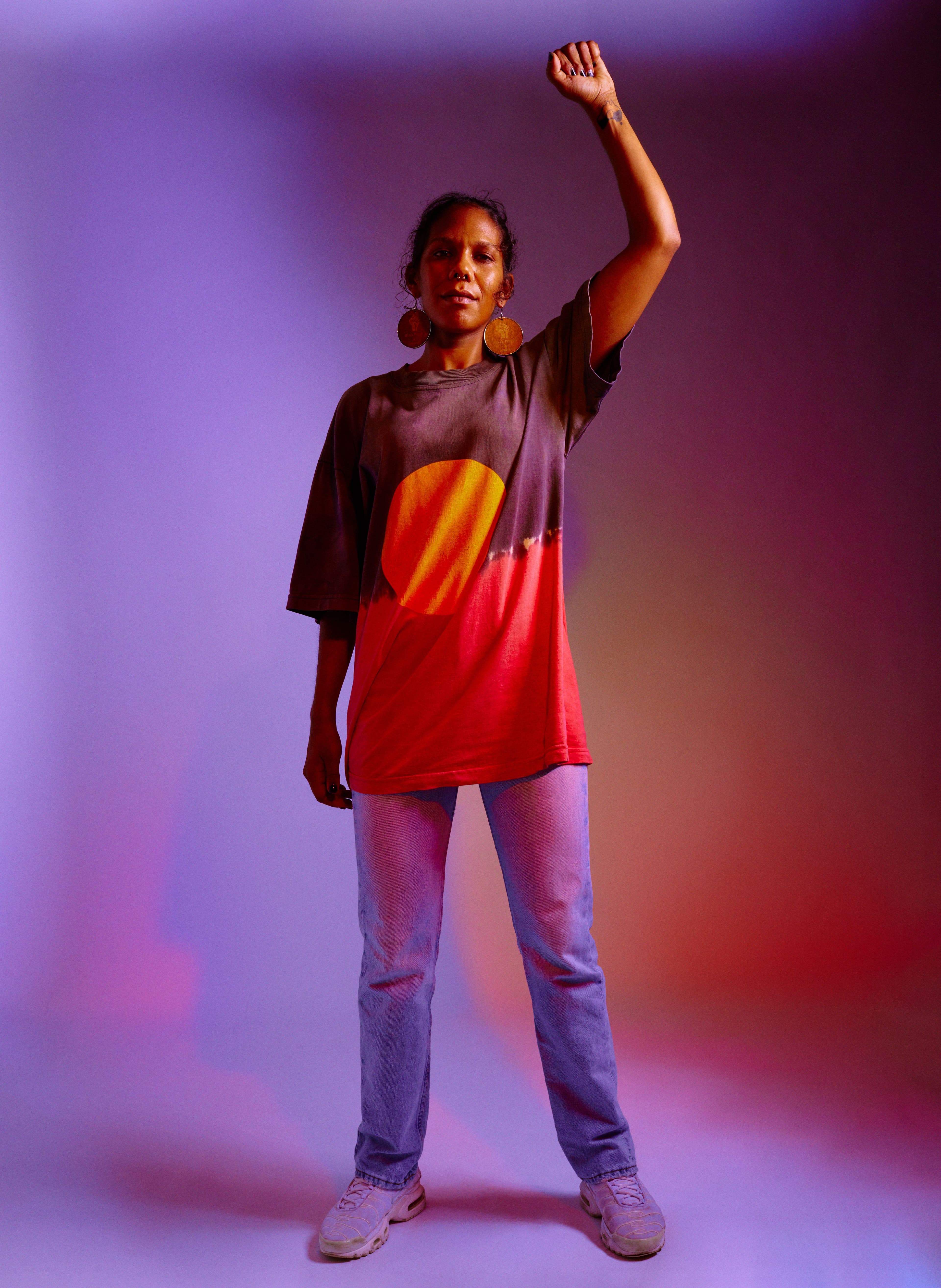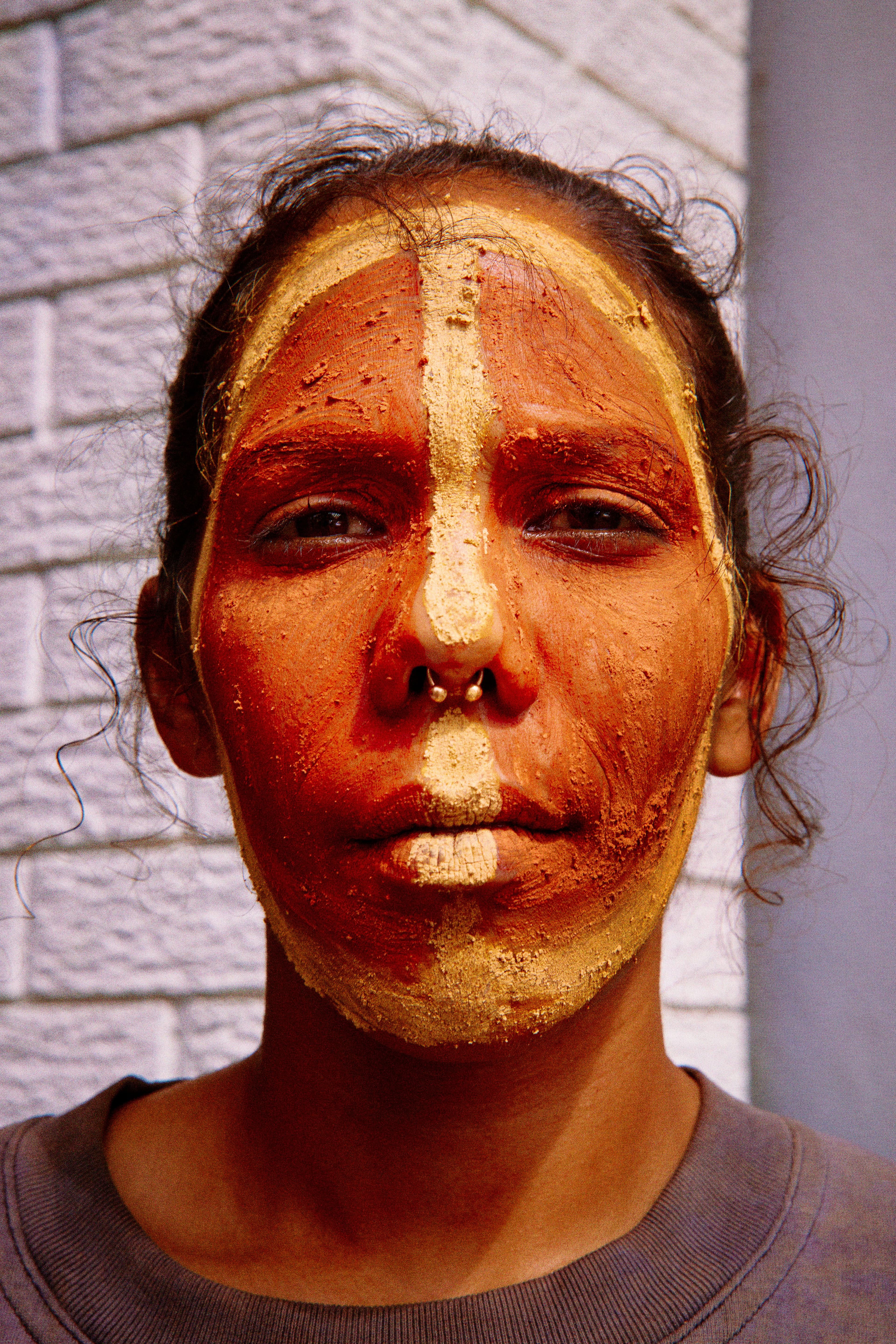
Vintage t-shirt, worn throughout, stylist’s own. Vintage jeans by Levi’s from Fabrique Vintage. Shoes and all jewelry throughout, Wharton’s own.
Generation Next: Ruby Wharton
Thirty years after Australia’s Royal Commission into Aboriginal Deaths in Custody, little change has been made: According to the latest report by the Australian Institute of Criminology, Aboriginal and Torres Strait Islander people are still six times more likely to die in police custody than non-Indigenous people, due to disproportionately high rates of incarceration. It’s little wonder then that Ruby Wharton, a Gamilaraay Kooma woman currently based in Meanjin/Brisbane and an activist with Warriors of the Aboriginal Resistance (WAR), a collective of “young Aboriginal people committed to the cause of decolonization,“ also identifies as an abolitionist. But the world Wharton dreams of goes beyond that.
“With WAR, and every other First Nations person here, we’re not just talking about being liberated because of racial discrimination or because of our Blakness,“ she says. “We’re not just trying to stop deaths in custody or false removals of children or land desecration. We are arguing that we are sovereign people and we have authority in these stolen, unceded lands.“
Wharton grew up fighting for Indigenous sovereign rights with her father, the veteran activist Wayne “Coco“ Wharton, in the only Commonwealth country that has never signed a treaty with those who inhabited it prior to colonization. Since then, she has organized Invasion Day rallies denouncing Australia’s national day, which marks the date British colonizers claimed the land for King George III, and has protested at the Commonwealth Games under a banner criticizing them as the “Stolenwealth Games.“

While she sees the rise of social media as beneficial for communicating and respects those who spread nuanced information across networks online, she is wary of armchair activists who don’t “physically contribute,“ as she puts it. “I see a lot of new organizers, a lot of younger people who claim to be activists,“ she says, “but the way they go about their activism is very individualistic.“
At WAR, Wharton adds, “we evaluate ourselves off our contributions to wider movements. It’s about how we can do it together. Who are we as individuals if we don’t represent our nations, our families, our clans? At the end of the day, we’re all part of the community, and I’m not here for that individualistic stuff.“
Currently, the efforts of the 23-year-old Clubhouse app enthusiast are focused on challenging and abolishing Australia’s criminal justice system. She is also studying psychology and law, two fields she hopes will contribute to her work. “As an abolitionist who wants to abolish prison, you have to have a sound understanding of the human condition,“ Wharton explains. “You have to be able to break the bars and use those bars to build different foundations.“ In the future, she aspires to use what she’s learning from psychology to benefit her community. “I believe we have different frameworks“ from the mainstream, she adds, “and that ultimately we can heal our people or care for our people who experience criminalization.“
Read this story and many more in print by ordering our inaugural issue here. See the full Generation Next series here.
As a nonprofit arts and culture publication dedicated to educating, inspiring, and uplifting creatives, Cero Magazine depends on your donations to create stories like these. Please support our work here.






